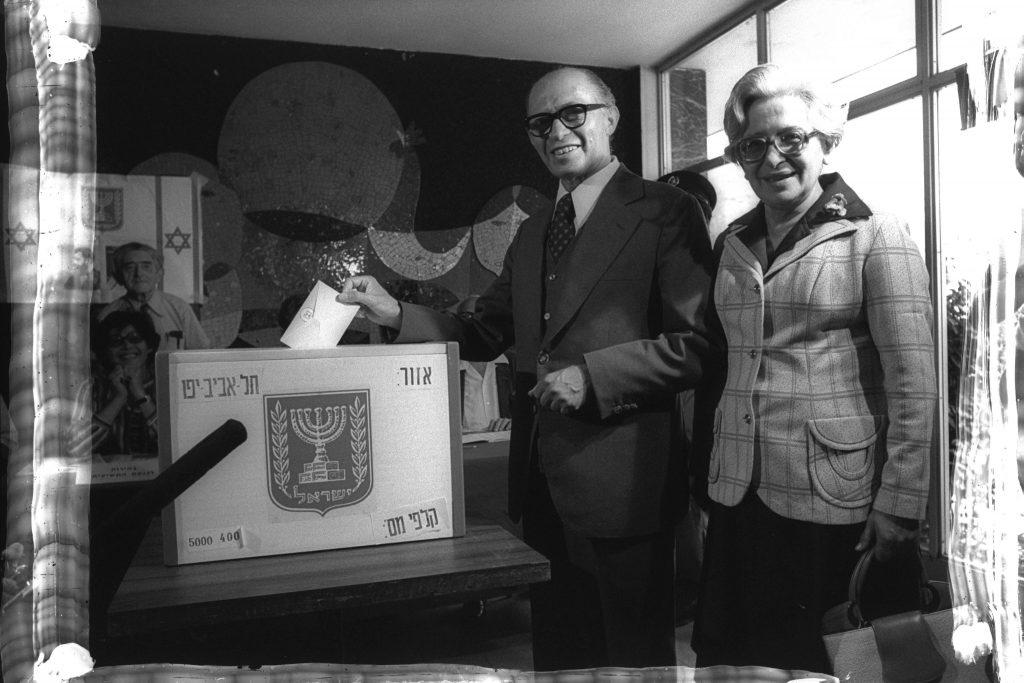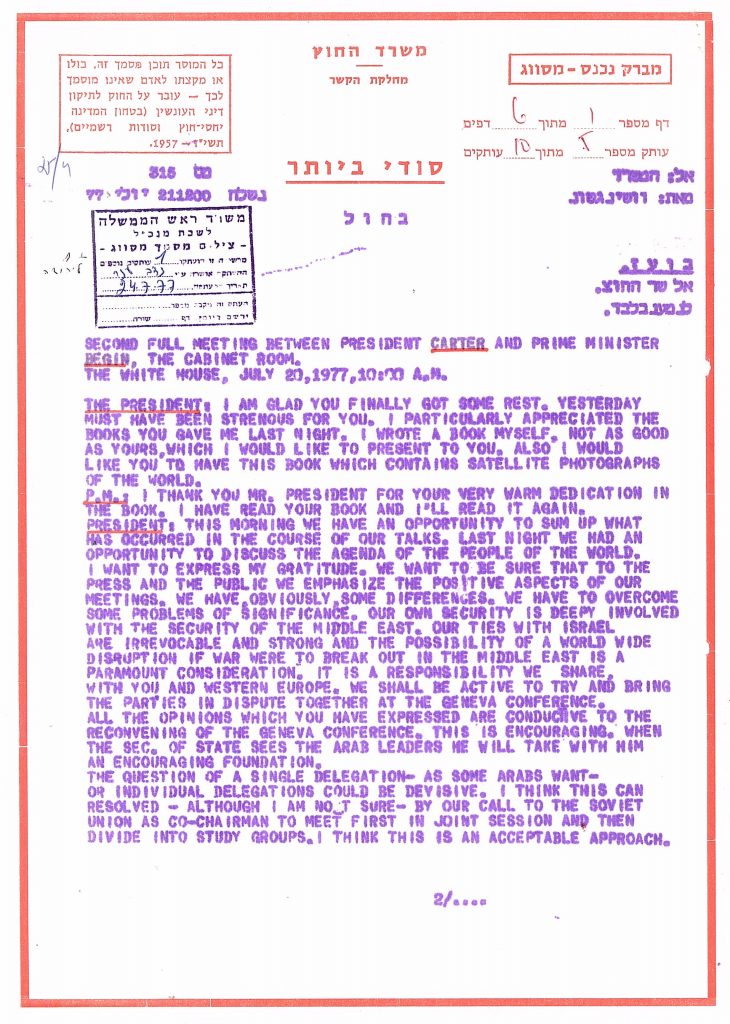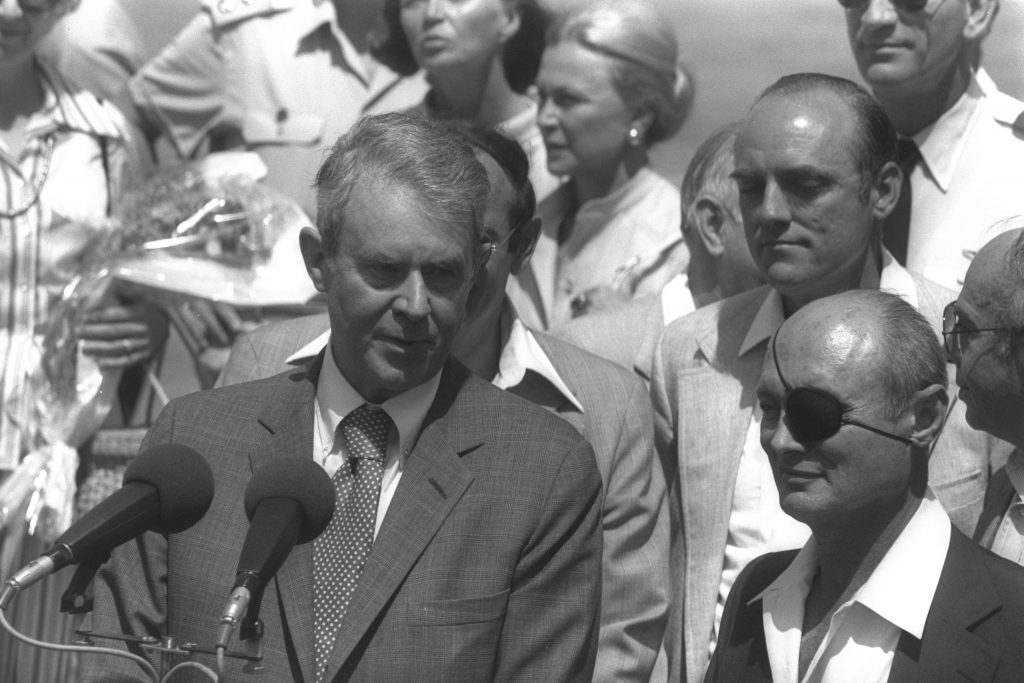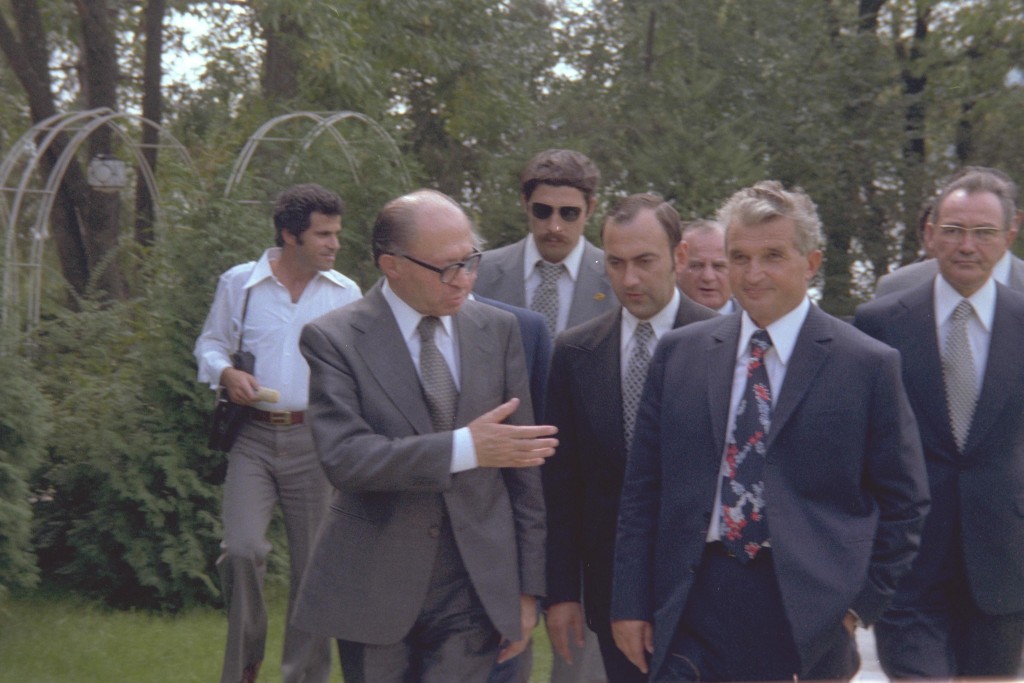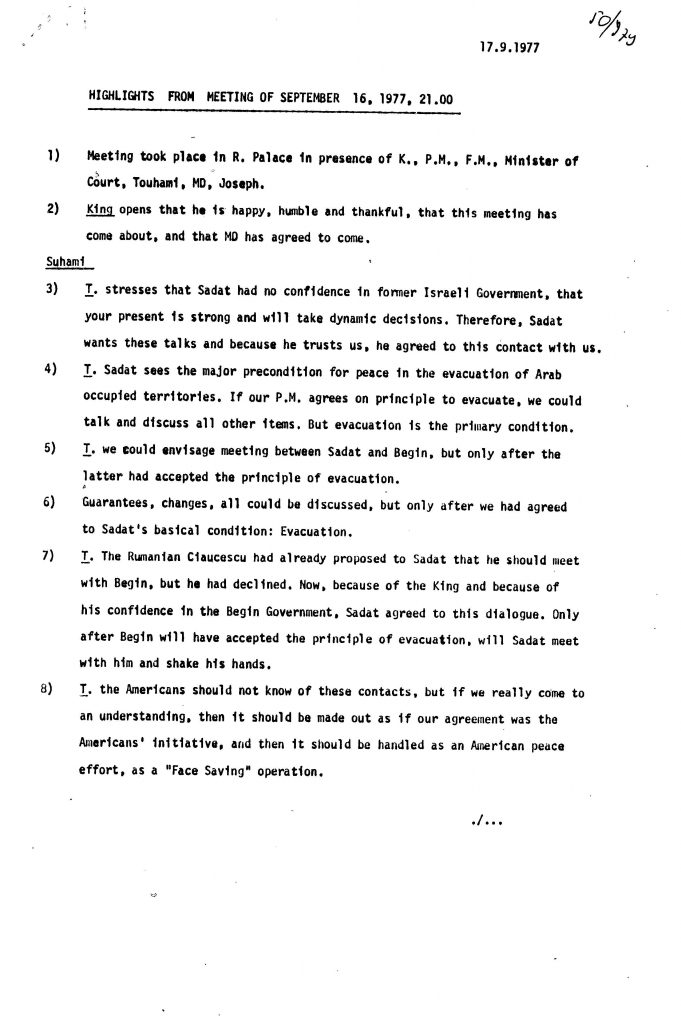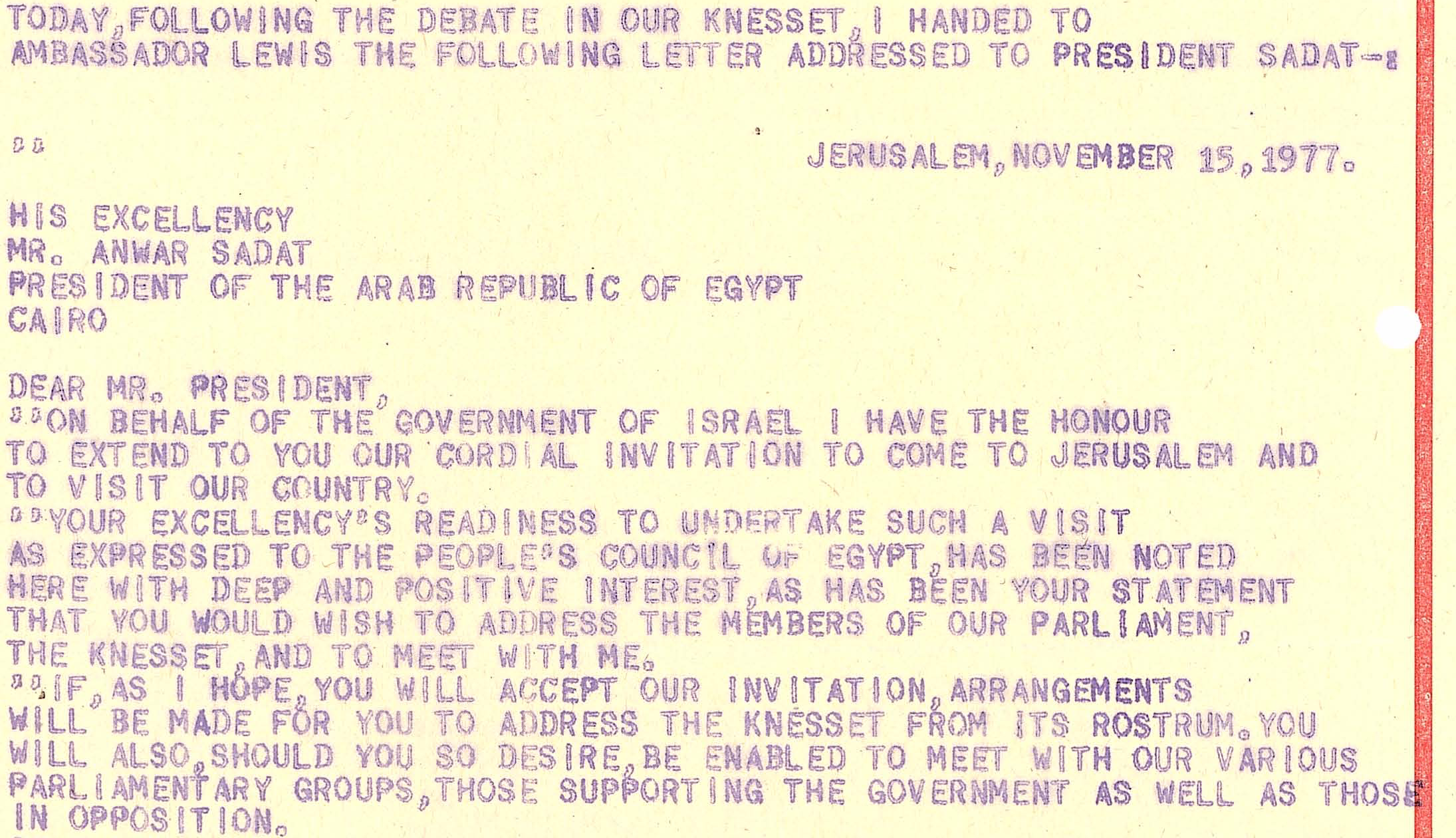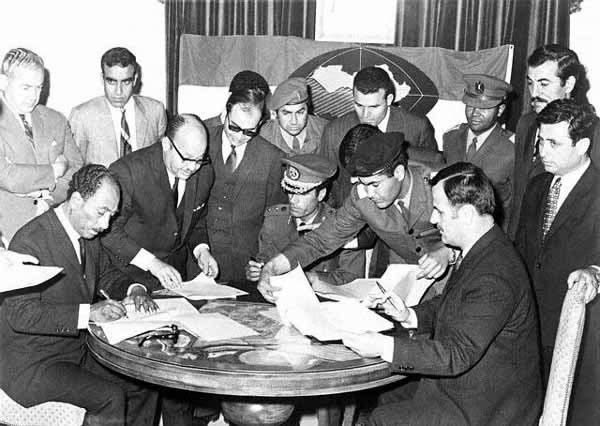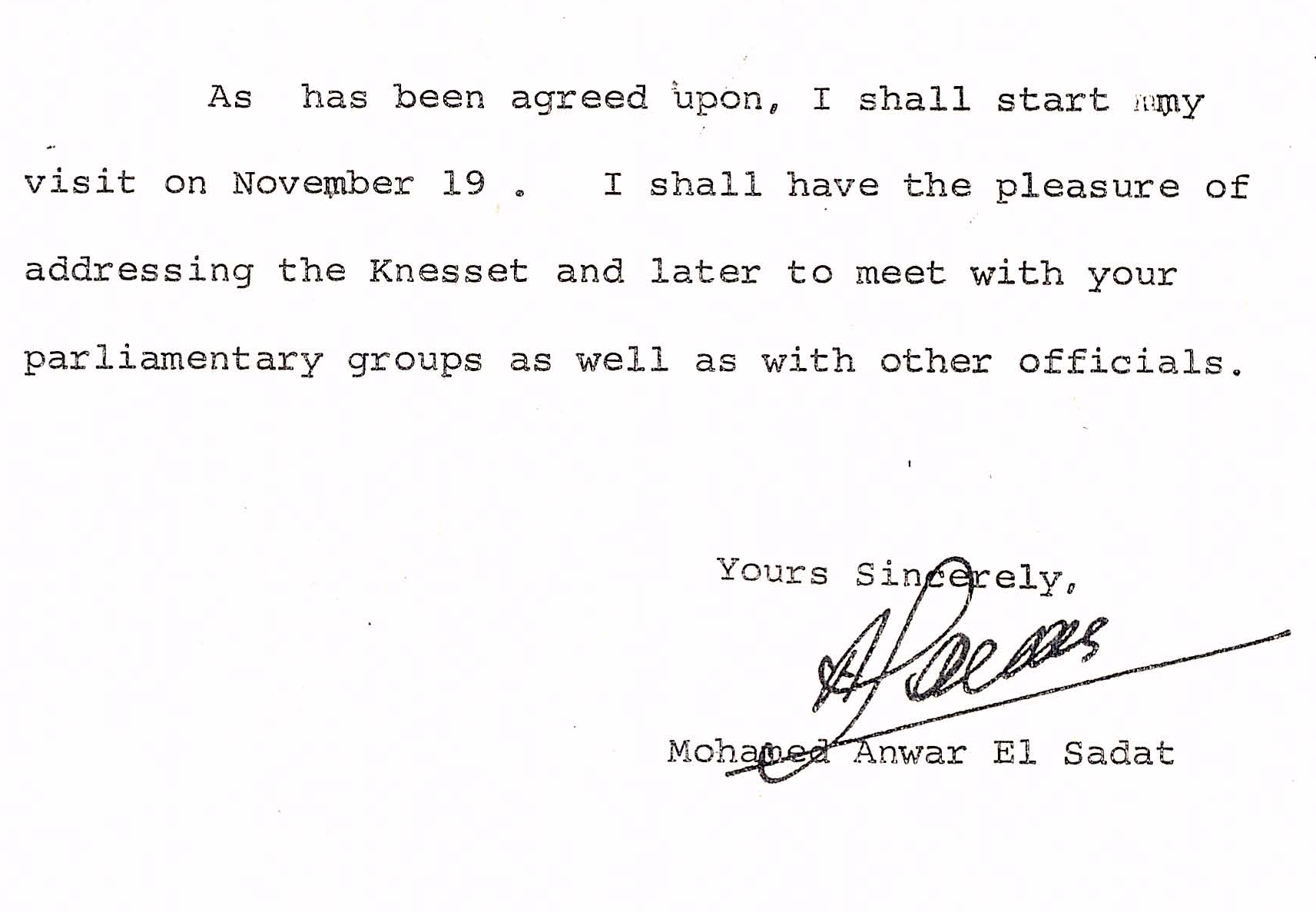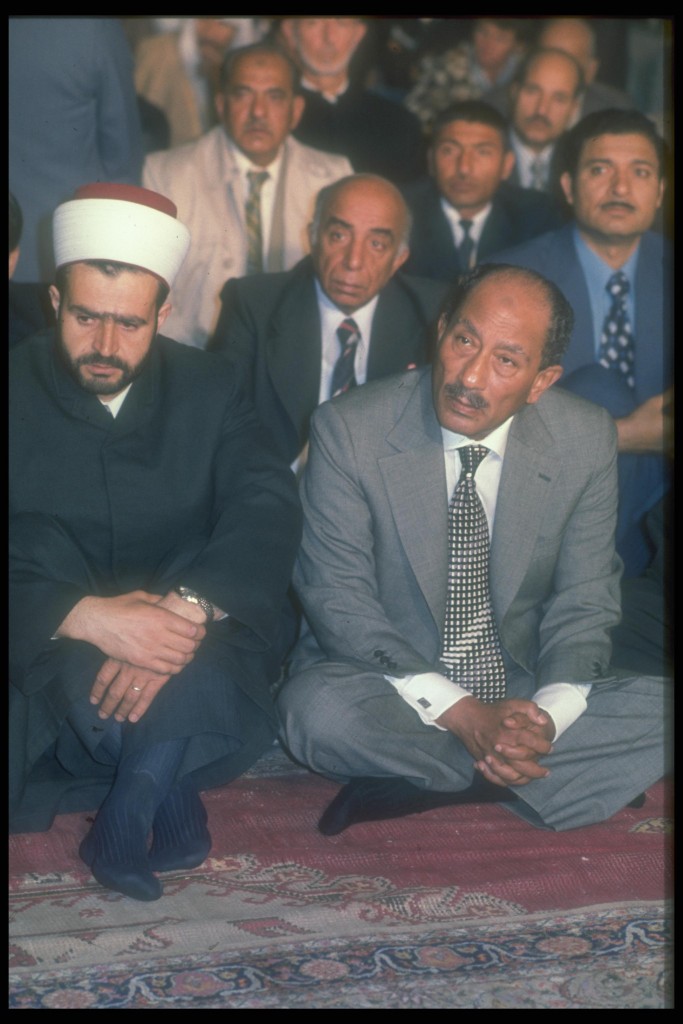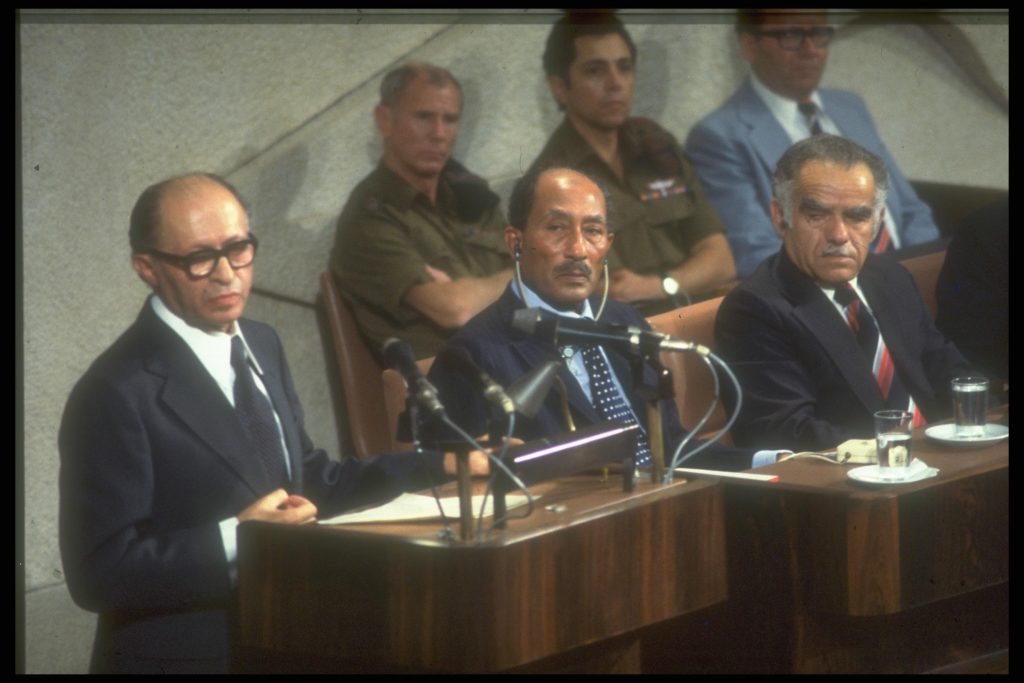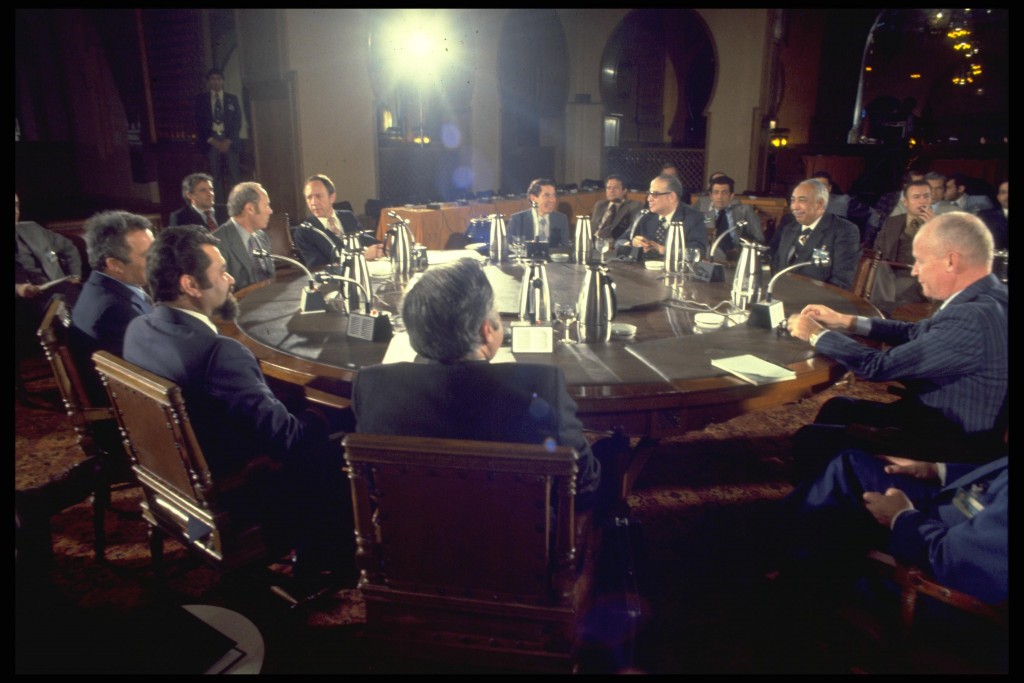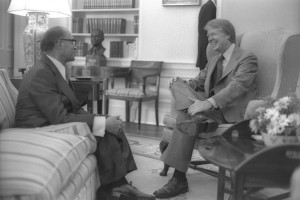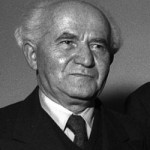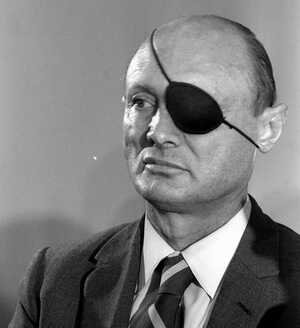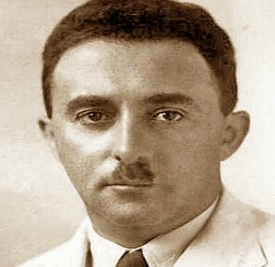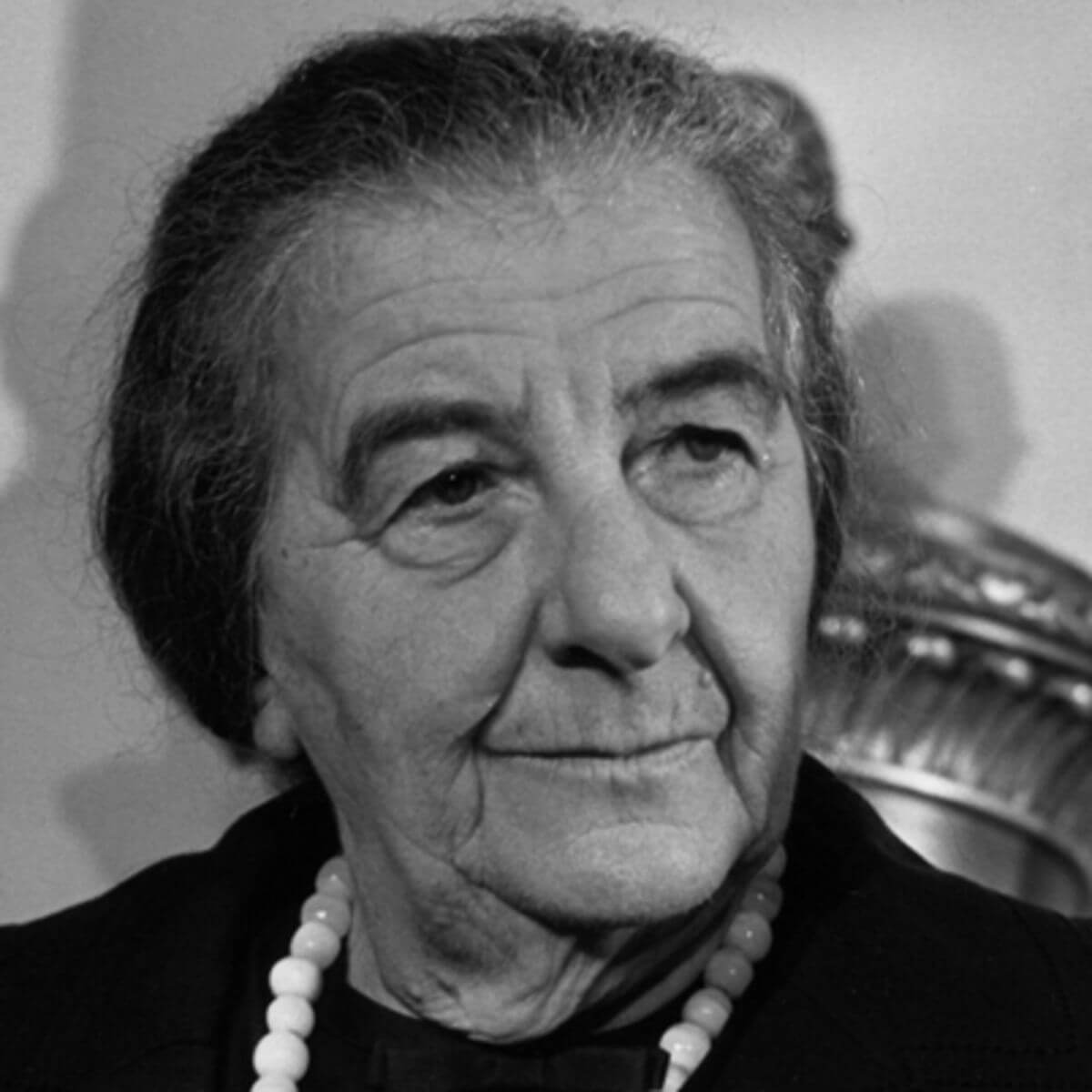“Let us say to one another and let it be a silent oath by both peoples…..no more wars, no more bloodshed and no more threats”. This was Prime Minister Menachem Begin’s appeal to the Egyptian people, in response to the dramatic declaration by President Anwar el-Sadat of Egypt that he was willing to go to Jerusalem in order to prevent another war, 40 years ago this November.
“Believe me, no more war. I am a man of my word” said Sadat to Defence Minister Ezer Weizman when they met in Jerusalem, according to Weizman’s account to his fellow ministers. Begin and his deputy, Yigael Yadin, agreed that, so far as they could make out, the Egyptians’ desire for peace was genuine. The promise of “no more war” became a central motif of the visit and made headlines all over the world
Sadat’s initiative, which led eventually to the peace treaty signed by Israel and Egypt in March 1979, is presented here by the Israel State Archives in a selection of documents showing events after the formation of the new government by Begin in June 1977, which led to Sadat’s decision, the Israeli reaction, the visit and how it was seen by the Israeli participants. Most of the documents are from the files of the Foreign Ministry and the Prime Minister’s Office. Some are in Hebrew only and can be seen on our Hebrew website. Wherever possible an English alternative, a translation or a link is given. See especially the selection of documents in English on Israel’s foreign relations on the website of the Ministry of Foreign Affairs, the translations and US documents appearing on the website of the Center for Israel Education in Atlanta and the documents on the peace talks from the Jimmy Carter Library

